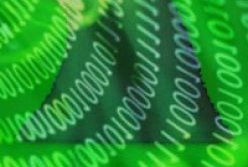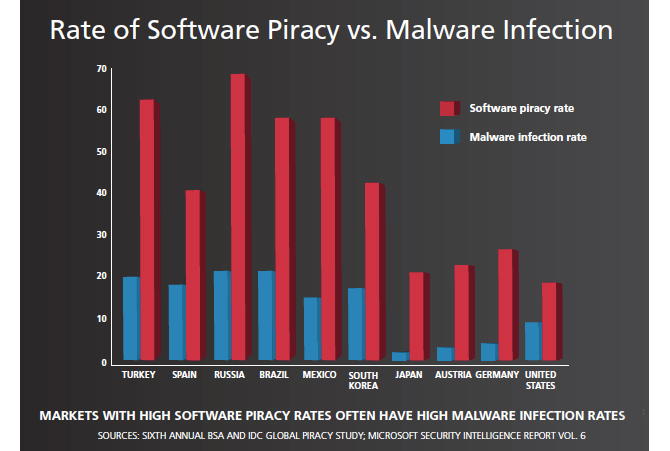Europe's online source of news, data & analysis for professionals involved in packaged media and new delivery technologies

41% of all software on personal computers obtained illegally
Worldwide, some 41% of all software installed on personal computers is obtained illegally, with foregone revenues to the software industry totaling $53 billion, according to the Business Software Alliance’s recent report on internet piracy report, Software Piracy on the Internet: A Threat To Your Security.
Software piracy affects more than just the software industry since for every $1 of PC software sold, there is another $3 to $4 of revenues lost to local IT support and distribution services. On any given day, nearly 1.7 billion people around the world use the Internet.
Security threats such as viruses, worms, trojans, and spyware are often designed to exploit vulnerabilities in common software products, forcing software developers to constantly develop patches and other fixes to keep emerging malware at bay, says the BSA report.
Those who use pirated, unlicensed software are typically unable to access or download essential patches and critical updates that ensure their systems remain as secure as possible, and are therefore more susceptible to attack over the long term. Moreover, once infected, consumers are often forced to turn to experts to repair the damage done by the malware, often negating any savings from having acquired and used the products illegally.
Globally, there is significant evidence to link software piracy with the frequency of malware attacks. While this correlation has not been measured with precision, the evidence from industry sources suggests that markets with high software piracy rates also have a tendency to experience high rates of malware infection.
Another study from IDC also shows that malware and pirated software frequently co-exist on certain Web sites that offer access to pirated software and piracy-related tools. At least a quarter of such sites were found to be rife with trojans and other security threats that are imbedded into downloaded products or distributed through other means to infect visitors’ computers.
This year's report highlights P2P networks and auction sites. Using special monitoring technology, the BSA issued 'takedown requests' when it found suspicious software being offered. In the first half of 2009, the BSA stepped up its efforts in this area and issued almost 2.4 million takedown notices related to P2P and BitTorrent file sharing, an increase of more than 200% over the same period in 2008.

Story filed 23.10.09



















